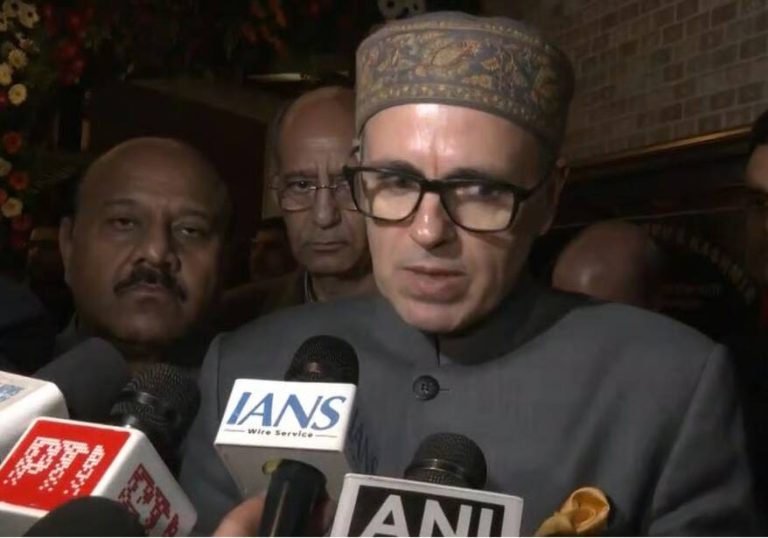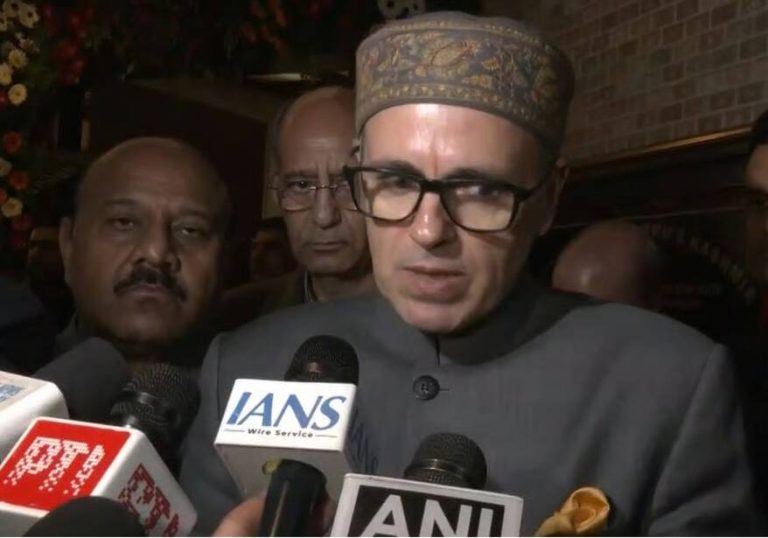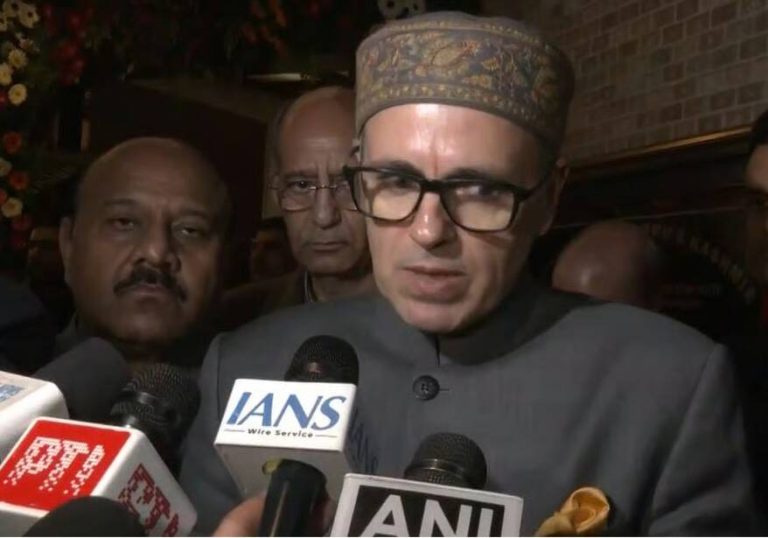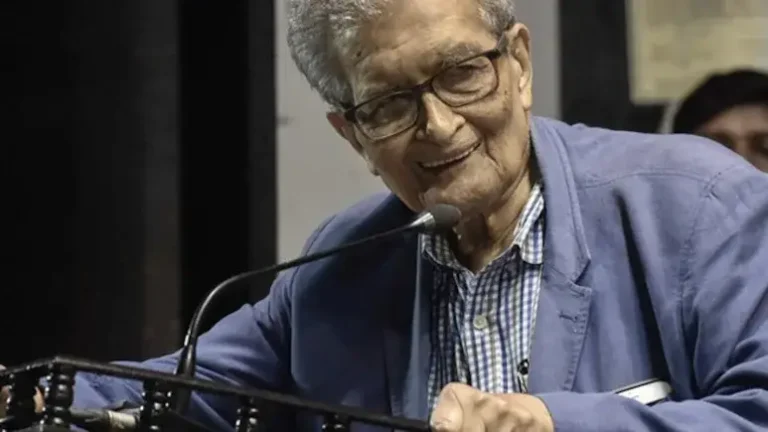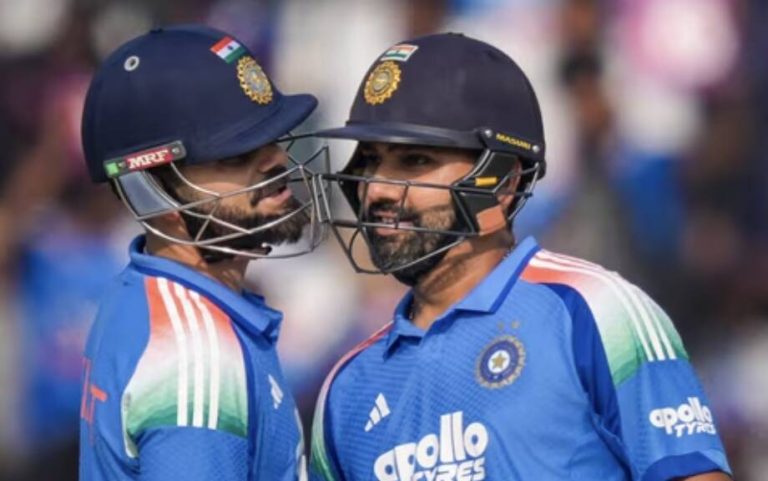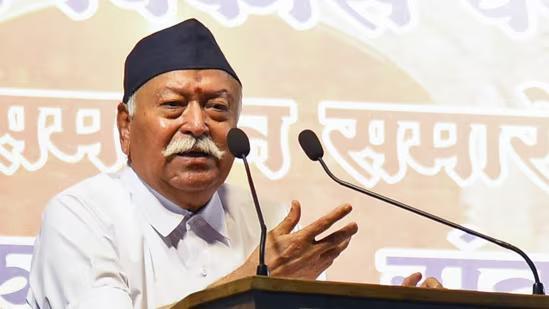
Muslims & Christians are also Hindus if they follow Indian culture: RSS chief Bhagwat
In a recent statement, RSS chief Mohan Bhagwat has sparked a new debate by redefining the term “Hindu”. According to him, anyone who takes pride in India, also known as Bharat, is a Hindu. This statement has far-reaching implications, as it broadens the traditional definition of Hinduism and encompasses people of other faiths, such as Muslims and Christians, under the umbrella of Hinduism. In this blog post, we will delve into the meaning and significance of Bhagwat’s statement and explore its potential impact on Indian society.
Bhagwat’s statement is significant because it challenges the conventional understanding of Hinduism as a religion. Traditionally, Hinduism is seen as a faith that is based on a set of rituals, customs, and beliefs that are unique to the Hindu community. However, Bhagwat’s definition of Hinduism is more inclusive and encompasses anyone who identifies with Indian culture and values. According to him, “If Muslims and Christians, even without giving up their worship, customs and traditions, worship this country, follow Indian culture…then they are Hindus.” This statement suggests that Hinduism is not just a religion, but a way of life that is rooted in Indian culture and traditions.
Bhagwat’s statement is also significant because it reflects a broader vision of Indian society. He believes that India does not need an official label to be a ‘Hindu Rashtra’ (Hindu nation) because its civilization already reflects it. This statement suggests that Indian society is already infused with Hindu values and traditions, and that these values are shared by people of all faiths. In other words, Bhagwat is arguing that Indian culture is synonymous with Hindu culture, and that anyone who identifies with Indian culture is, in effect, a Hindu.
This statement has sparked a lot of debate and discussion, with some people welcoming it as a move towards greater inclusivity and others criticizing it as an attempt to impose Hinduism on other faiths. Some have argued that Bhagwat’s statement is an attempt to redefine the term “Hindu” in a way that is more inclusive and embracing of diversity. Others have criticized it as an attempt to erase the distinct identities of other faiths and impose a Hindu agenda on Indian society.
One of the key implications of Bhagwat’s statement is that it challenges the traditional notion of Hinduism as a monolithic faith. Hinduism is often seen as a faith that is based on a set of rigid rituals and customs, but Bhagwat’s statement suggests that it is more flexible and inclusive than that. By defining Hinduism in terms of Indian culture and traditions, Bhagwat is suggesting that Hinduism is not just a faith, but a way of life that is shared by people of all backgrounds.
Another implication of Bhagwat’s statement is that it reflects a broader vision of Indian society as a multicultural and multi-faith society. By suggesting that Muslims and Christians can be Hindus if they identify with Indian culture, Bhagwat is acknowledging that Indian society is diverse and multifaceted. This statement reflects a more inclusive and embracing vision of Indian society, one that values diversity and promotes unity and cohesion.
However, Bhagwat’s statement has also been criticized for being overly simplistic and naive. Some have argued that it is not possible to reduce complex faiths like Islam and Christianity to a simple definition of Hinduism. Others have pointed out that Indian culture is not monolithic, but rather a complex tapestry of different cultures and traditions. By reducing Indian culture to a single definition of Hinduism, Bhagwat’s statement overlooks the diversity and complexity of Indian society.
In conclusion, RSS chief Mohan Bhagwat’s statement that Muslims and Christians can be Hindus if they follow Indian culture is a significant and thought-provoking one. It challenges traditional notions of Hinduism and reflects a broader vision of Indian society as a multicultural and multi-faith society. While it has sparked a lot of debate and discussion, it is clear that Bhagwat’s statement is an attempt to promote unity and cohesion in Indian society. By defining Hinduism in terms of Indian culture and traditions, Bhagwat is suggesting that Hinduism is not just a faith, but a way of life that is shared by people of all backgrounds.
Ultimately, the significance of Bhagwat’s statement will depend on how it is received and interpreted by different sections of Indian society. While some may welcome it as a move towards greater inclusivity and unity, others may criticize it as an attempt to impose Hinduism on other faiths. As with any complex and multifaceted issue, the truth lies somewhere in between, and it is up to each individual to decide what they think about Bhagwat’s statement.
